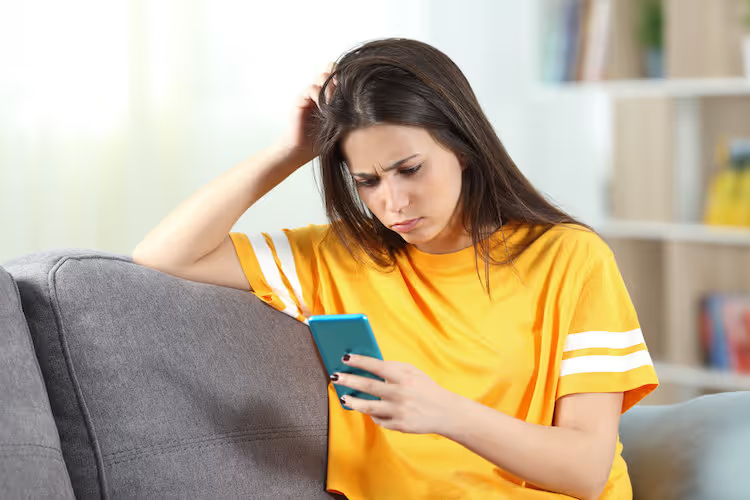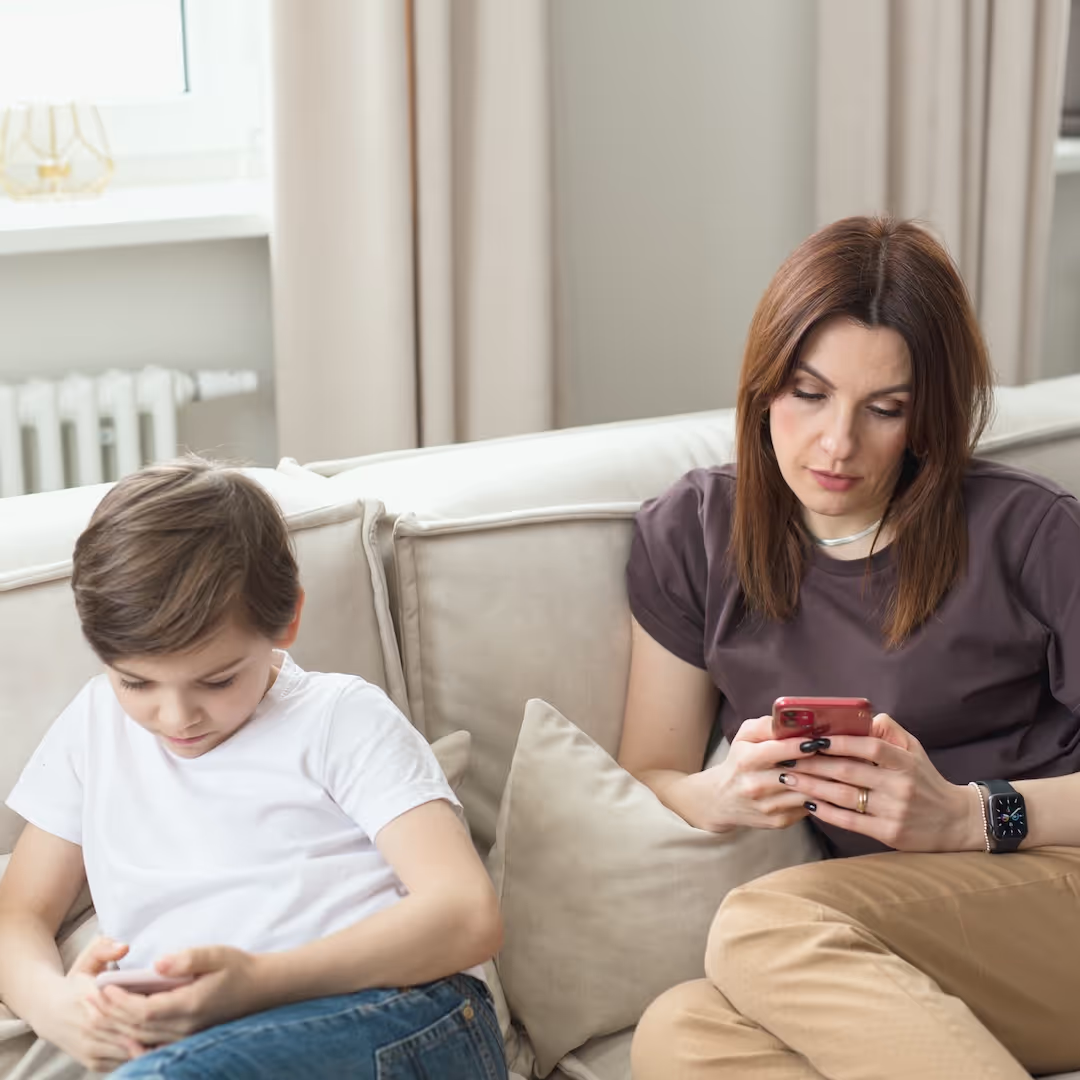


A new survey, Social Media, Social Life: Teens Reveal Their Experiences, of 1,141 teens ages 13-to-17, was released yesterday. Today, I will discuss how teens responded about their emotional experiences with social media. In upcoming Tech Talk Tuesdays, I will delve into other aspects of this study.
One essential question the survey asks is “Does social media make you feel more or less depressed?” The majority (81%) of respondents said that social media “doesn't make much difference either way,” 16% said less depressed, and 3% said more depressed.
While it is important for science to get this big picture-type of an answer, it’s key to remember that teens are feeling all sorts of emotions even if they say that the overall impact is neutral. When teens are using Snapchat, Instagram, and such, they are experiencing many “micro-emotions”—bits of joy, jealousy, laughter, disappointment, closeness, and many others.
All teens in the survey answered questions about their social-emotional well-being (SEWB). This identified ones who had low social-emotional well-being (sad, lonely, etc), and those with a high social-emotional well-being. If a respondent had low SEWB, they were much more likely to report negative reactions to social media. For example, one question asked: Does social media make you feel depressed? Among the students in the low SEWB group, 11% said yes, while in the high SEWB 0% said yes.
These findings above do not surprise me, think of self-comparison, feeling left out, and jealousy. What does surprise me is that the teens, who scored low, are more likely than their peers to say that social media caused a positive impact on them.
For example:
Does social media make you feel more confident? Among the students in the low SEWB 23% said yes, while only 12% of the high SEWB said yes.
One could have thought that being in a low emotional state would make even potentially positive things not positive. One reason why they are more likely to report a positive is that many will use online platforms to feel better, by doing something like SnapChatting or texting a close friend.
Although clearly there are positives aspects of social media, it is so important that we stay tuned into our teens that are struggling emotionally because they are more susceptible to negative experiences on social media. Having ongoing, caring conversations with our teens about how to maximize the upside of social media and minimize the downsides is crucial. It is important to know that Increased face-to-face time has consistently been correlated with better emotional well-being. Time away from screens is critical for so many aspects of youth development.
Learn more about showing our movies in your school or community!
Join Screenagers filmmaker Delaney Ruston MD for our latest Podcast

Learn more about our Screen-Free Sleep campaign at the website!
Our movie made for parents and educators of younger kids
Learn more about showing our movies in your school or community!
Learn more about showing our movies in your school or community!
Join Screenagers filmmaker Delaney Ruston MD for our latest Podcast

Learn more about our Screen-Free Sleep campaign at the website!
Our movie made for parents and educators of younger kids
Join Screenagers filmmaker Delaney Ruston MD for our latest Podcast
As we’re about to celebrate 10 years of Screenagers, we want to hear what’s been most helpful and what you’d like to see next.
Please click here to share your thoughts with us in our community survey. It only takes 5–10 minutes, and everyone who completes it will be entered to win one of five $50 Amazon vouchers.
A new survey, Social Media, Social Life: Teens Reveal Their Experiences, of 1,141 teens ages 13-to-17, was released yesterday. Today, I will discuss how teens responded about their emotional experiences with social media. In upcoming Tech Talk Tuesdays, I will delve into other aspects of this study.
One essential question the survey asks is “Does social media make you feel more or less depressed?” The majority (81%) of respondents said that social media “doesn't make much difference either way,” 16% said less depressed, and 3% said more depressed.
While it is important for science to get this big picture-type of an answer, it’s key to remember that teens are feeling all sorts of emotions even if they say that the overall impact is neutral. When teens are using Snapchat, Instagram, and such, they are experiencing many “micro-emotions”—bits of joy, jealousy, laughter, disappointment, closeness, and many others.
All teens in the survey answered questions about their social-emotional well-being (SEWB). This identified ones who had low social-emotional well-being (sad, lonely, etc), and those with a high social-emotional well-being. If a respondent had low SEWB, they were much more likely to report negative reactions to social media. For example, one question asked: Does social media make you feel depressed? Among the students in the low SEWB group, 11% said yes, while in the high SEWB 0% said yes.
These findings above do not surprise me, think of self-comparison, feeling left out, and jealousy. What does surprise me is that the teens, who scored low, are more likely than their peers to say that social media caused a positive impact on them.
For example:
Does social media make you feel more confident? Among the students in the low SEWB 23% said yes, while only 12% of the high SEWB said yes.
One could have thought that being in a low emotional state would make even potentially positive things not positive. One reason why they are more likely to report a positive is that many will use online platforms to feel better, by doing something like SnapChatting or texting a close friend.
Although clearly there are positives aspects of social media, it is so important that we stay tuned into our teens that are struggling emotionally because they are more susceptible to negative experiences on social media. Having ongoing, caring conversations with our teens about how to maximize the upside of social media and minimize the downsides is crucial. It is important to know that Increased face-to-face time has consistently been correlated with better emotional well-being. Time away from screens is critical for so many aspects of youth development.
Sign up here to receive the weekly Tech Talk Tuesdays newsletter from Screenagers filmmaker Delaney Ruston MD.
We respect your privacy.
A new survey, Social Media, Social Life: Teens Reveal Their Experiences, of 1,141 teens ages 13-to-17, was released yesterday. Today, I will discuss how teens responded about their emotional experiences with social media. In upcoming Tech Talk Tuesdays, I will delve into other aspects of this study.
One essential question the survey asks is “Does social media make you feel more or less depressed?” The majority (81%) of respondents said that social media “doesn't make much difference either way,” 16% said less depressed, and 3% said more depressed.
While it is important for science to get this big picture-type of an answer, it’s key to remember that teens are feeling all sorts of emotions even if they say that the overall impact is neutral. When teens are using Snapchat, Instagram, and such, they are experiencing many “micro-emotions”—bits of joy, jealousy, laughter, disappointment, closeness, and many others.
All teens in the survey answered questions about their social-emotional well-being (SEWB). This identified ones who had low social-emotional well-being (sad, lonely, etc), and those with a high social-emotional well-being. If a respondent had low SEWB, they were much more likely to report negative reactions to social media. For example, one question asked: Does social media make you feel depressed? Among the students in the low SEWB group, 11% said yes, while in the high SEWB 0% said yes.
These findings above do not surprise me, think of self-comparison, feeling left out, and jealousy. What does surprise me is that the teens, who scored low, are more likely than their peers to say that social media caused a positive impact on them.
For example:
Does social media make you feel more confident? Among the students in the low SEWB 23% said yes, while only 12% of the high SEWB said yes.
One could have thought that being in a low emotional state would make even potentially positive things not positive. One reason why they are more likely to report a positive is that many will use online platforms to feel better, by doing something like SnapChatting or texting a close friend.
Although clearly there are positives aspects of social media, it is so important that we stay tuned into our teens that are struggling emotionally because they are more susceptible to negative experiences on social media. Having ongoing, caring conversations with our teens about how to maximize the upside of social media and minimize the downsides is crucial. It is important to know that Increased face-to-face time has consistently been correlated with better emotional well-being. Time away from screens is critical for so many aspects of youth development.

Instagram’s new Teen Accounts are being promoted as safer for kids, but recent nationally representative data tells a more complicated story. This post invites families to take a research-based quiz together and have a calm, curiosity-driven conversation about what teens are actually experiencing on the platform — and what that means for trust, safety, and screen time.
READ MORE >
It feels like we’re finally hitting a tipping point. The harms from social media in young people’s lives have been building for far too long, and bold solutions can’t wait any longer. That’s why what just happened in Australia is extremely exciting. Their new nationwide move marks one of the biggest attempts yet to protect kids online. And as we released a new podcast episode yesterday featuring a mother who lost her 14-year-old son after a tragic connection made through social media, I couldn’t help but think: this is exactly the kind of real-world action families have been desperate for. In today’s blog, I share five key things to understand about what Australia is doing because it’s big, it’s controversial, and it might just spark global change.
READ MORE >
I hear from so many parents who feel conflicted about their own phone habits when it comes to modeling healthy use for their kids. They’ll say, “I tell my kids to get off their screens, but then I’m on mine all the time.” Today I introduce two moms who are taking on my One Small Change Challenge and share how you can try it too.
READ MORE >for more like this, DR. DELANEY RUSTON'S NEW BOOK, PARENTING IN THE SCREEN AGE, IS THE DEFINITIVE GUIDE FOR TODAY’S PARENTS. WITH INSIGHTS ON SCREEN TIME FROM RESEARCHERS, INPUT FROM KIDS & TEENS, THIS BOOK IS PACKED WITH SOLUTIONS FOR HOW TO START AND SUSTAIN PRODUCTIVE FAMILY TALKS ABOUT TECHNOLOGY AND IT’S IMPACT ON OUR MENTAL WELLBEING.
